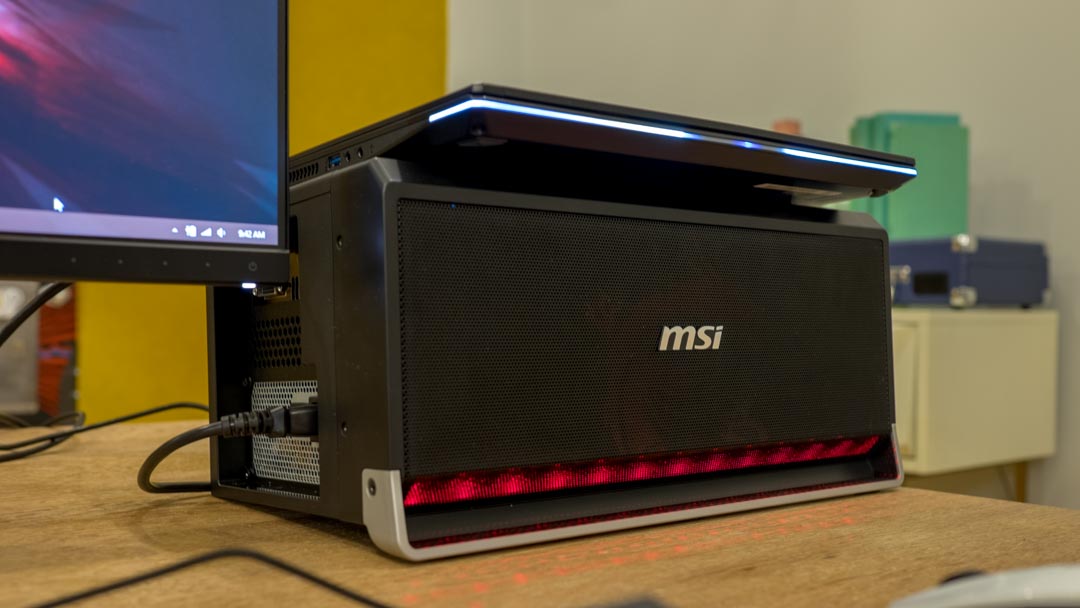Why you can trust TechRadar
The MSI GS30 Shadow's integrated Intel Iris Pro graphics are no joke. Paired with a beastly Intel Core i7 processor, this gaming Ultrabook was able to easily complete any strenuous task I tortured it with.
Without the aid of the GamingDock, the notebook was even able to play Middle Earth: Shadow of Mordor and Metro: Last Light at a somewhat-playable 24 frames per second on the lowest settings. Hearthstone players will also have no problem playing the virtual card game on the go with the highest visual settings.
Here's how the GS30 Shadow fared in our benchmark tests:
Benchmarks
- 3DMark: Cloud Gate: 9,355; Sky Diver: 5,035; Fire Strike: 1,187
- Cinebench CPU: 633 points; Graphics: 51.84 fps
- PCMark 8 (Home Test): 3,538 points
- PCMark 8 Battery Life: 1 hours and 46 minutes
- Middle Earth Shadow of Mordor (1080p, Ultra): n/a; (1080p, Low): 23.92 fps
- Metro: Last Light (1080p, Ultra): 5 fps; (1080p, Low): 23.33 fps
Plugging the notebook into the GamingDock of course more than doubled the performance of this machine. See how the GS30 Shadow performed in our benchmark tests with a helping hand from MSI's Nvidia GTX 980.
- 3DMark: Cloud Gate: 23,603; Sky Diver: 25,435; Fire Strike: 11,285
- Cinebench CPU: 630 points; Graphics: 140.85 fps
- PCMark 8 (Home Test): 4,098 points
- Middle Earth Shadow of Mordor (1080p, Ultra): 93.70 fps; (1080p, Low): 208.48 fps
- Metro: Last Light (1080p, Ultra): 51.33 fps; (1080p, Low): 139 fps
The MSI GS30 Shadow put up some impressive numbers with just its Intel Core i7 chip alone, and the GamingDock helps push its benchmark results even farther. That said, I was expecting some significantly improved scores from a high-end desktop part like the Nvidia GTX 980.
While the Shadow paired with the GamingDock was able to achieve a Fire Strike score of 11,285 points, the Aorus X7 Pro and it's dual Nvidia GTX 970M setup does not lag far behind with 10,451 points. The same could be said about the Nvidia GTX 980M-powered MSI GT72 Dominator, which completed the same taxing benchmark with 8,228 points.
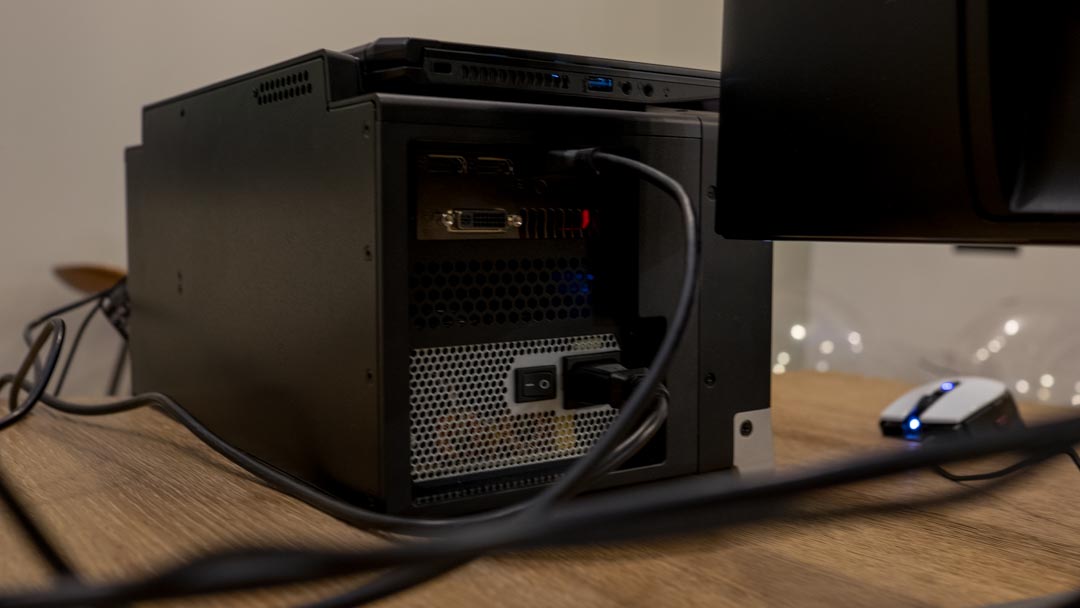
The Nvidia GTX 980 desktop GPU only truly flexes its larger graphical muscle while running in game benchmarks. MSI's two-headed gaming beast was able to play Shadow of Mordor at a brisk 93.70 fps and Metro: Last Light at 51.33 fps. These test were both done with the graphical settings turned all the way up, the resolution set to 1080p and with V-sync turned off.
Sign up for breaking news, reviews, opinion, top tech deals, and more.
By comparison, the Aorus X7 Pro was able to render the Shadow of Mordor benchmark at 82.28 fps, plus Last Light at 43.67 fps. The MSI Dominator, meanwhile, lags behind and was only able to play Last Light at 37 fps at the highest settings.
If these numbers are any indication, it's clear desktop parts still hold a commanding lead, but mobile GPUs are closing the gap with this generation of 900M-series cards built on Nvidia's Maxwell architecture. The advantage of the GamingDock is that it allows you to upgrade your graphics card, the most important PC component for gaming performance.
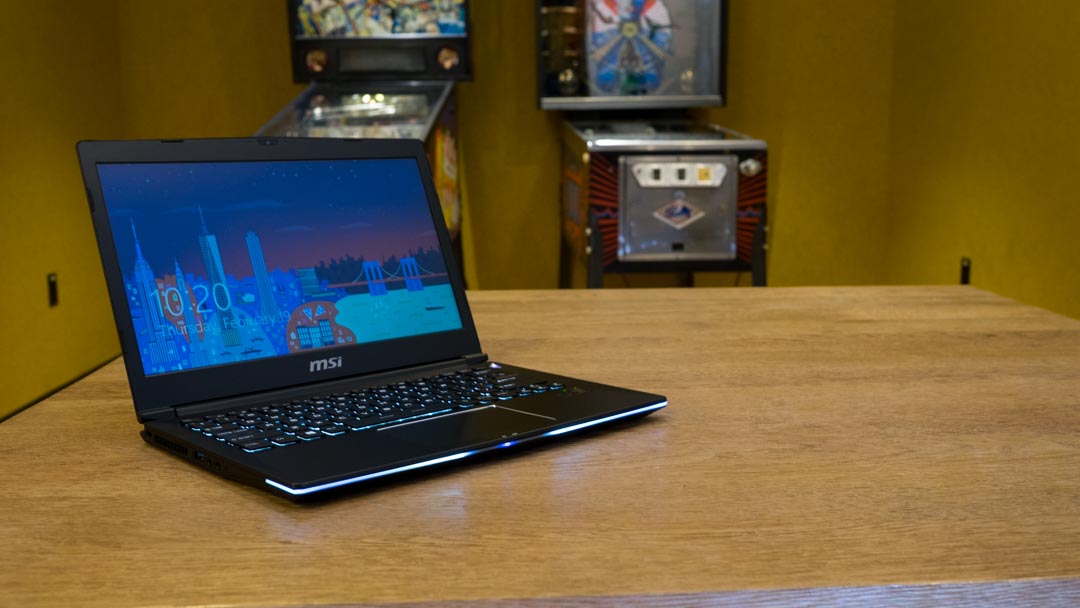
Some laptop makers, like Origin and MSI, now offer a service that allows users to swap out their mobile components, but it's only available to machines with GPUs attached to MXM cards. Worse off, this process also requires sending the machine out to the manufacturer. With the Gaming Dock, users can just buy a new GPU when needed, while the MSI GS30 itself is equipped with enough high-end parts to last quite a number of years.
A great screen that you can't use
It's a real shame that you can't use the MSI GS30 screen while gaming, because it's absolutely gorgeous. The display is plenty bright even in the presence of direct sunlight. Bright lamps and other indoor lighting also fail to turn the screen into a mirror, thanks to an excellent anti-glare coating. Colors are rich and accurate, meanwhile the blacks are deep with excellent contrast; everything about this display just sings.
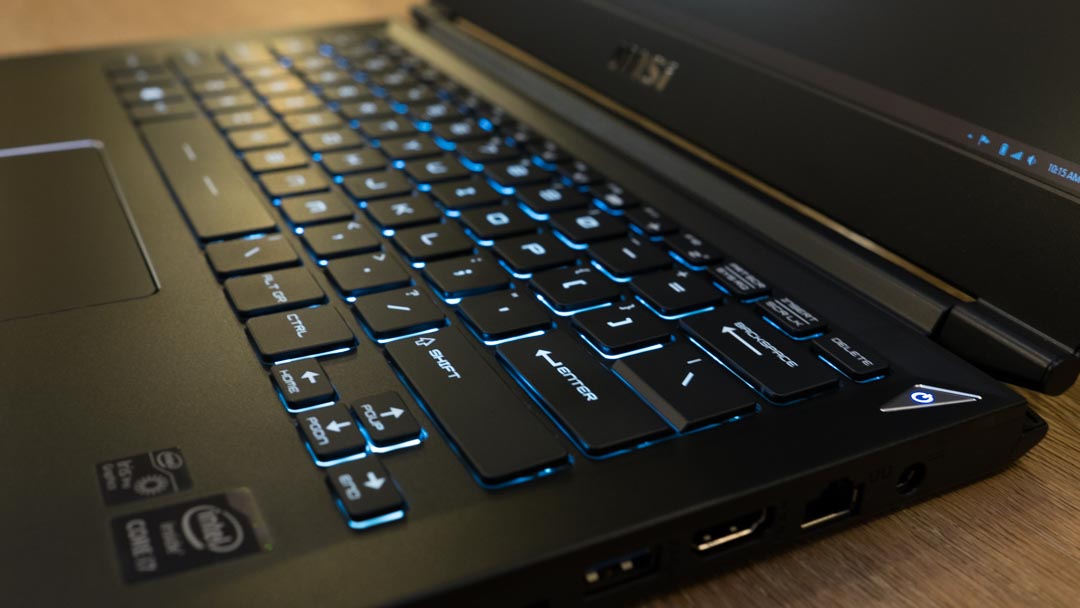
Similarly, the speakers on the laptop are surprisingly decent. There's a bit of tininess to the sound, but overall the audio quality has a full-bodied character to it. This makes it a great little system for streaming movies as well as playing some tunes.
Unfortunately the GamingDock's speakers are downright disappointing. Despite being equipped with two large 5-watt speakers along with a subwoofer, the sound out of the GamingDock sounds even tinier than the laptop's smaller tweeters.
A tank half full
You would think that a purely processor-powered system would have great battery life, but the GS30 Shadow kicked the can after just 2 hours and 32 minutes. Mind you, I ran this battery test with an extremely light work load including clicking around six Firefox tabs, chatting in Skype, streaming Google Play Music with the Outcoldplayer app, all while turning down the display to half of its maximum brightness.
Running the PCMark8 battery test yielded even more disappointing results with the GS30, shutting down after just 1 hour and 46 minutes. By comparison, power hogging machines, like the Aorus X7 Pro, lasted 1 hour 53 minutes, while the MSI GT72 Dominator also fared better with a 2 hour and 18 minute battery life.
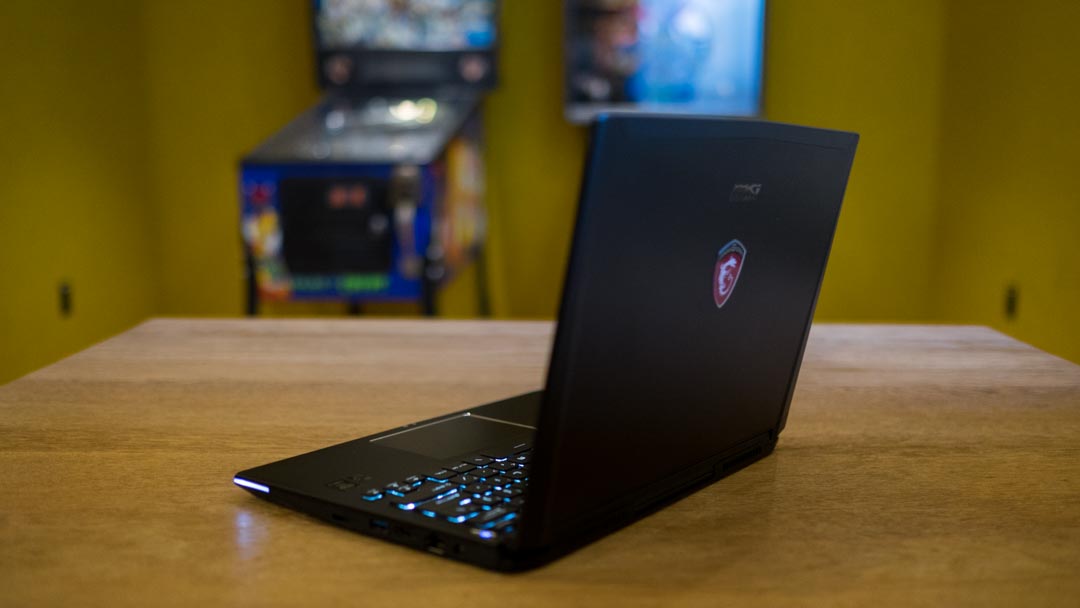
It's genuinely disappointing to learn that the GS30 Shadow does not last longer on the go, especially since it's running with a fourth generation Haswell chip. It's a shortcoming that does not completely ruin this laptop but you'll need to have it tethered to the power adapter or plugged into the GamingDock more often than not.
Bundled software
The GS30 Shadow comes with a heavy load of bloatware, including trial versions of both McAfee Internet Security and Norton Antivirus that you'll want to replace immediately with Microsoft Security Essentials or literally anything else. MSI has also oddly chose to load up the system with a number of Xbox for Windows games, including Wordament and Microsoft Mahjong.
I'd recommend uninstalling almost every piece of software that comes preloaded, as SSD storage is scarce with only 256GB on tap. That said, here's the short list of apps you might want to keep on the system.
- MSI Super Charger: This system utility controls the GS30 super charger port, which can charge up devices while the laptop is off.
- Intel Iris Graphics Control Panel: According to our benchmark results, kicking the system up to max adds another 10% of performance.
- Dragon Gaming: Check out how your system is performing, including CPU and memory usage, power consumption, CPU temperatures and more.
- Sizing options: Windows 8.1 scaling options aren't the greatest, and so MSI has included its own tool that does a better job of enlarging Windows on high-resolution displays.
- Xsplit Game Caster: Live stream and record your gameplay like a YouTube celebrity.
- System Control Manager: Another simplified management tool for turning on ECO battery mode and shutting off wireless radios.

Kevin Lee was a former computing reporter at TechRadar. Kevin is now the SEO Updates Editor at IGN based in New York. He handles all of the best of tech buying guides while also dipping his hand in the entertainment and games evergreen content. Kevin has over eight years of experience in the tech and games publications with previous bylines at Polygon, PC World, and more. Outside of work, Kevin is major movie buff of cult and bad films. He also regularly plays flight & space sim and racing games. IRL he's a fan of archery, axe throwing, and board games.
